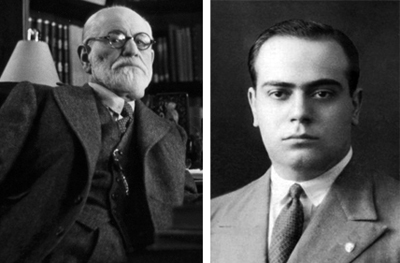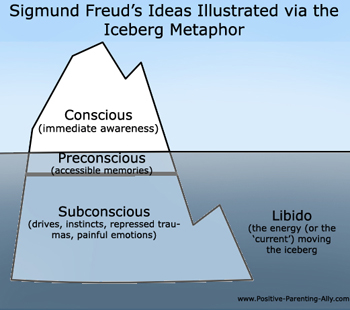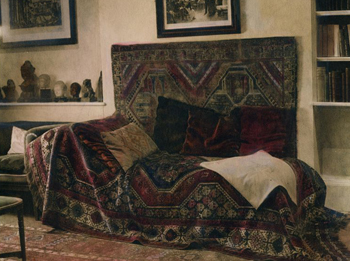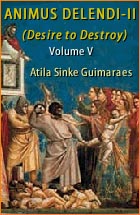Personalities
 |
 |
 |
 |
 |
 |
 |
Freud – His Doctrines & Errors
The death of Freud (1856-September 23, 1939) in England brought new attention to his personality and doctrine. He is encircled with the halo of a wise man, but his doctrine is little known, as are those points that are condemnable under the light of reason.
 A quick analysis of what psychoanalysis is and its errors will reveal the real knowledge of Freud.
A quick analysis of what psychoanalysis is and its errors will reveal the real knowledge of Freud.
The doctrine of the psychoanalyst is not exempt from truth, nor is Freud original in his correct principles. However, he often falls into errors when he makes exaggerated applications and more original and dangerous abstractions.
Fundamentally, Freud’s doctrine is based upon the existence of the subconscious and in the absorption of all psychological life by it. The first foundation is correct, the second is erroneous. In fact, the existence of the subconscious is not disputed. However, although this subconscious influences the psychological life, it does not drain it.
In the subconscious, or better said, in the unconscious, Freud discovers the instincts and complexes – systems of tendencies closely or loosely grouped in a certain direction – that explain all the dynamism of our activity. Frustrated acts, unconscious acts and dreams demonstrate the existence of the subconscious and, according to Freud, constitute the elements of our psychological energy.
Thus, the analysis of these elements, according to him, reveals the various complexes and instincts that pulsate in the subconscious. Among them, the “libido,” or the instinct of sexual pleasure, is protuberant and evolves in various overlapping phases.
 The instincts are impeded from their dynamic development in the consciousness due to “censorship,” which is a psychological function that is the fruit of formation, education, social environment, laws, religion, etc.
The instincts are impeded from their dynamic development in the consciousness due to “censorship,” which is a psychological function that is the fruit of formation, education, social environment, laws, religion, etc.
These censures repress and compress both the instincts and complexes, inhibiting them from their full evolution according to their natural tendencies. The continuous action of censorship creating inhibitions forms a whole set of violated feelings, whose fruit is neurosis and nervous disorders.
To provide therapy for these nervous disorders, the physician, as Freud was, must probe deep into the orientation of the instincts, form them and even sublimate them.
This is, in broad strokes, the doctrine of Sigismund Freud. It is legitimate in its insistence on the role of the subconscious in man’s life. It is exaggerated when it pretends to reduce all psychological life to be a necessary servant of the instincts. Regarding the inferior, sensible part of man, common also to animals, the theory supposes that the reason cannot judge the instincts, but rather should channel them to serve the higher principles that regulate human activity.
Moreover, the reduction of all human activity to “libido” as its first and fundamental principle is a simplistic view of a much more complex reality.
Also, the real existence of “censorship” is not formed by “social prejudices” such as “religion” and “morals.” It would be necessary to present a different course of arguments to refute this label of “prejudice” that Freud launches against religion, which I will not do here. However, in a few words, I can say that Morals and religion exist objectively, not as a fruit of prejudices, but as a fruit of man’s nature and Divine Revelation.
 Psychoanalytic therapy, purged of its exaggerations, is not original, since the Church herself uses it when she encourages the examination of consciousness and Confession for her faithful.
It is the introspective method. It is certainly correct as a method, but it is not the remedy.
Psychoanalytic therapy, purged of its exaggerations, is not original, since the Church herself uses it when she encourages the examination of consciousness and Confession for her faithful.
It is the introspective method. It is certainly correct as a method, but it is not the remedy.
The solution for psychological life is not found in its identification with the instincts as the norm of behavior, but rather it is found in the education of these instincts according to a rational criterion.
Finally, while the study of the subconscious has value and is an accepted fact, it is not an accepted fact that the redemption of the sexual instinct takes place through the symbolism of dreams.
This sexualizing effort of Freud is perhaps the most profound feature of his doctrine. It appears more as a morbid conception than the fruit of the mind of a sage and thinker.


Prof. Plinio, right, analyzes the teaching of Freud, left, shortly after his death in1939
The doctrine of the psychoanalyst is not exempt from truth, nor is Freud original in his correct principles. However, he often falls into errors when he makes exaggerated applications and more original and dangerous abstractions.
Fundamentally, Freud’s doctrine is based upon the existence of the subconscious and in the absorption of all psychological life by it. The first foundation is correct, the second is erroneous. In fact, the existence of the subconscious is not disputed. However, although this subconscious influences the psychological life, it does not drain it.
In the subconscious, or better said, in the unconscious, Freud discovers the instincts and complexes – systems of tendencies closely or loosely grouped in a certain direction – that explain all the dynamism of our activity. Frustrated acts, unconscious acts and dreams demonstrate the existence of the subconscious and, according to Freud, constitute the elements of our psychological energy.
Thus, the analysis of these elements, according to him, reveals the various complexes and instincts that pulsate in the subconscious. Among them, the “libido,” or the instinct of sexual pleasure, is protuberant and evolves in various overlapping phases.

Freud considers the libido the driving force of man, paving the way to the Sexual Revolution
These censures repress and compress both the instincts and complexes, inhibiting them from their full evolution according to their natural tendencies. The continuous action of censorship creating inhibitions forms a whole set of violated feelings, whose fruit is neurosis and nervous disorders.
To provide therapy for these nervous disorders, the physician, as Freud was, must probe deep into the orientation of the instincts, form them and even sublimate them.
This is, in broad strokes, the doctrine of Sigismund Freud. It is legitimate in its insistence on the role of the subconscious in man’s life. It is exaggerated when it pretends to reduce all psychological life to be a necessary servant of the instincts. Regarding the inferior, sensible part of man, common also to animals, the theory supposes that the reason cannot judge the instincts, but rather should channel them to serve the higher principles that regulate human activity.
Moreover, the reduction of all human activity to “libido” as its first and fundamental principle is a simplistic view of a much more complex reality.
Also, the real existence of “censorship” is not formed by “social prejudices” such as “religion” and “morals.” It would be necessary to present a different course of arguments to refute this label of “prejudice” that Freud launches against religion, which I will not do here. However, in a few words, I can say that Morals and religion exist objectively, not as a fruit of prejudices, but as a fruit of man’s nature and Divine Revelation.

Freud's famous couch where he placed patients to delve deep into their subconscious
The solution for psychological life is not found in its identification with the instincts as the norm of behavior, but rather it is found in the education of these instincts according to a rational criterion.
Finally, while the study of the subconscious has value and is an accepted fact, it is not an accepted fact that the redemption of the sexual instinct takes place through the symbolism of dreams.
This sexualizing effort of Freud is perhaps the most profound feature of his doctrine. It appears more as a morbid conception than the fruit of the mind of a sage and thinker.

Translated from O Legionário, October 1, 1939, n. 368, p. 8
Posted June 14, 2019
Posted June 14, 2019
______________________
______________________
 Volume I |
 Volume II |
 Volume III |
 Volume IV |
 Volume V |
 Volume VI |
 Volume VII |
 Volume VIII |
 Volume IX |
 Volume X |
 Volume XI |
 Special Edition |


